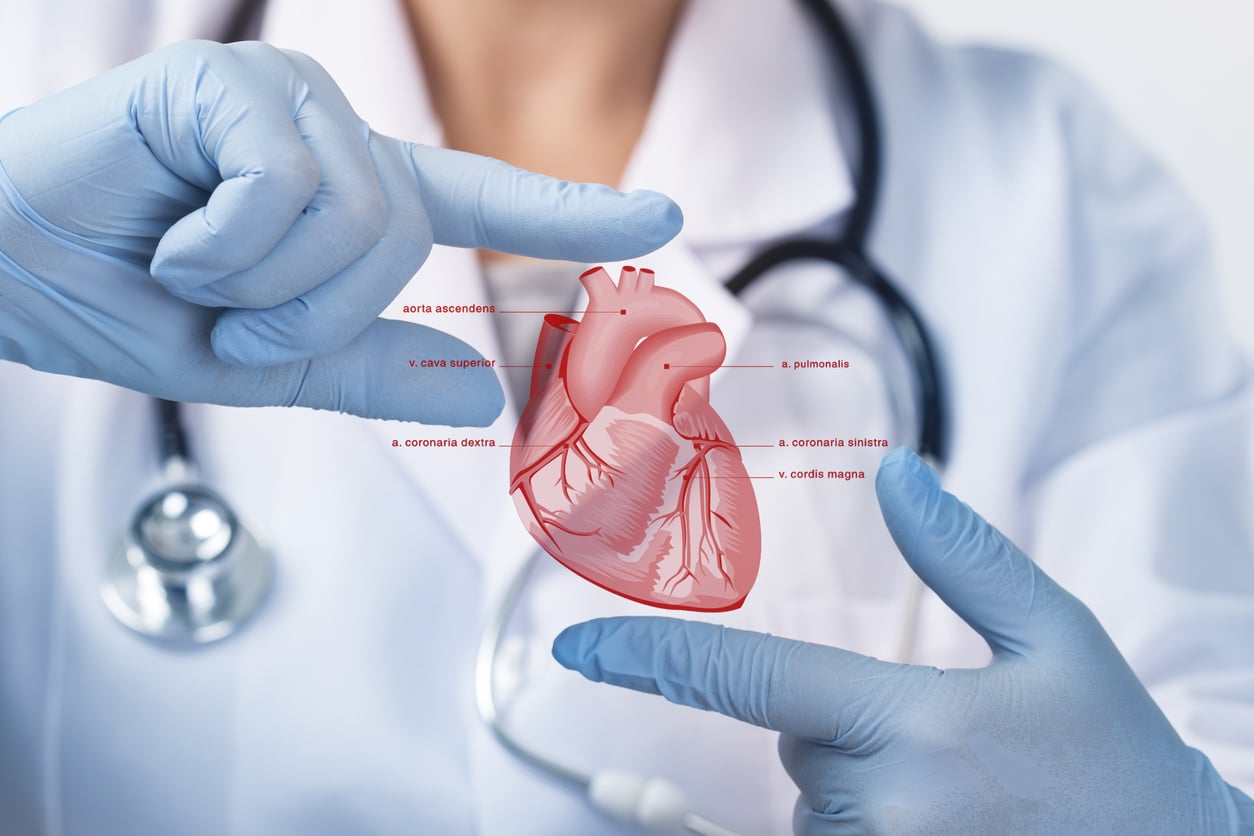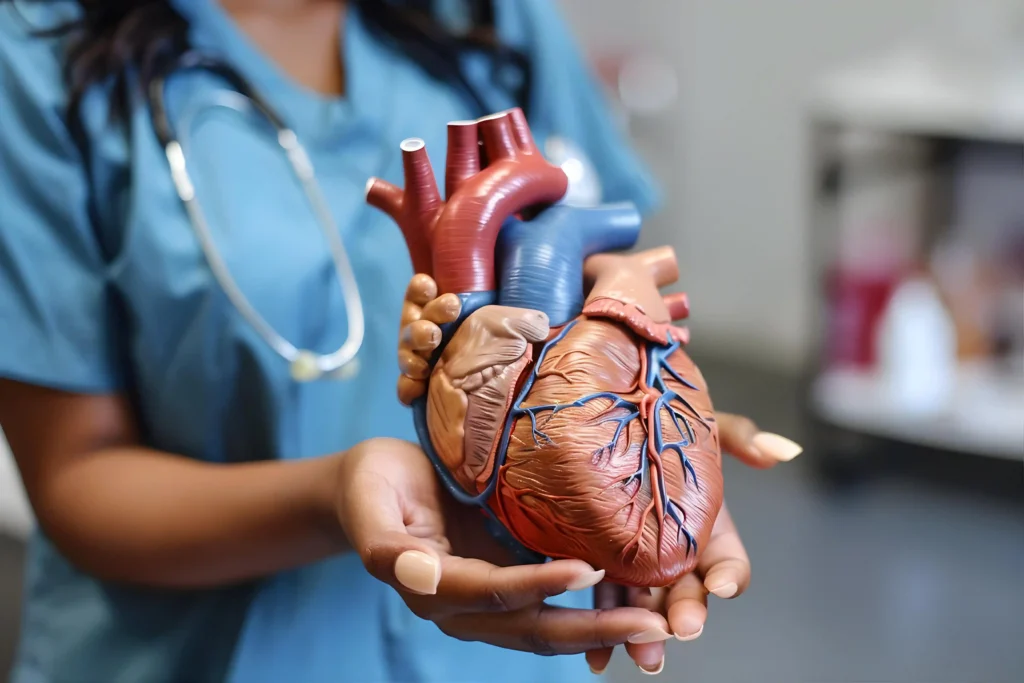Recognizing the Importance of Cardiology in Modern Healthcare Solutions
Cardiology plays an important function in modern-day medical care, specifically as cardiovascular disease remains to be the leading reason for death worldwide. Developments in diagnostics and treatment have transformed client care, allowing earlier interventions and enhanced results. Moreover, the shift towards preventive cardiology empowers individuals to handle their wellness proactively. As modern technology remains to progress, the combination of ingenious services may better redefine cardiology's influence on public health and wellness, triggering a closer examination of arising patterns and their ramifications.
The Prevalence of Heart Problem and Its Influence on Public Health And Wellness
Heart disease continues to be the leading cause of fatality internationally, its impact expands far past private clients to influence public health and wellness systems and economies. The high occurrence of heart disease positions a considerable strain on health care resources, requiring increased financing for prevention, recovery, and treatment programs. Public health and wellness initiatives should resolve risk variables such as obesity, cigarette smoking, and sedentary way of lives, which add greatly to the increasing occurrence of heart conditions.Moreover, the financial concern connected with heart problem is immense, including not just direct medical expenses yet also indirect expenses associated to shed performance and premature mortality. Neighborhoods deal with obstacles in managing these costs, frequently bring about disparities in healthcare access and outcomes. As the population ages and lifestyle-related dangers remain to rise, the urgency for effective cardiology interventions ends up being vital. Attending to heart condition is not just an issue of specific wellness yet likewise an important public wellness concern.
Developments in Heart Diagnostics and Imaging Techniques
Recent developments in cardiac diagnostics and imaging techniques have actually changed the area of cardiology, improving the capability to discover and keep track of cardiovascular disease. Strategies such as heart MRI, CT angiography, and echocardiography have become increasingly innovative, supplying in-depth photos of heart frameworks and functions. These modalities permit for the early identification of problems like coronary artery illness, heart failure, and valvular disorders.Moreover, advancements in non-invasive diagnostics, such as wearable modern technology and remote surveillance gadgets, have actually equipped clients and medical care carriers. These tools facilitate real-time monitoring of heart rhythms and other essential indications, resulting in prompt interventions. In addition, expert system is being incorporated right into imaging analysis, boosting accuracy and performance in diagnosis.
Technologies in Treatment Alternatives for Heart Conditions
Current advancements in cardiology have actually led to considerable innovations in treatment alternatives for heart disease. These consist of advanced surgical strategies that enhance step-by-step end results and emerging medicines that supply new opportunities for treatment. As the field progresses, these technologies play an important duty in improving client treatment and end results.
Advanced Surgical Techniques
Developments in surgical strategies have actually transformed the landscape of cardiology, providing brand-new hope for people with heart disease. Minimally intrusive procedures, such as catheter-based treatments, have actually substantially lowered recovery times and medical facility remains. Strategies like robotic-assisted surgery enhance precision, enabling specialists to browse intricate anatomical structures with greater accuracy. Additionally, improvements in imaging modern technology promote real-time visualization throughout treatments, boosting outcomes. Transcatheter aortic valve substitute (TAVR) exhibits a breakthrough in dealing with aortic constriction, making it possible for shutoff substitute without open-heart surgical treatment. Furthermore, hybrid methods that integrate surgical and catheter-based approaches give customized options for different cardiac issues. These advanced medical techniques not only enhance patient safety but also expand treatment alternatives, emphasizing the essential duty of technology in modern-day cardiology techniques.
Arising Drugs and Therapies
As the landscape of cardiology continues to evolve, arising medicines and therapies play a pivotal duty in improving treatment alternatives for heart conditions. Innovations such as unique anticoagulants and advanced lipid-lowering representatives have changed the administration of cardiovascular illness, significantly lowering individual morbidity and mortality. Furthermore, the development of genetics therapies and regenerative medication offers appealing avenues for dealing with conditions previously regarded irreversible. Clinical trials are consistently exposing the efficiency of these therapies, pressing the boundaries of standard therapies. Furthermore, the assimilation of digital health and wellness technologies helps with tailored medicine, permitting customized treatment plans based upon hereditary and way of life factors. Collectively, these improvements emphasize the dynamic nature of cardiology, enhancing individual end results and redefining standards of care in contemporary health care.
The Duty of Preventive Cardiology in Person Treatment
Preventive cardiology plays a vital duty in person treatment by concentrating on the identification of risk factors that add to cardiovascular disease. With way of life adjustment methods and very early discovery strategies, medical care carriers can effectively reduce the incidence of cardio occasions - Cardiology care. This positive technique not only enhances client outcomes but also advertises lasting wellness
Danger Factor Identification
While cardiovascular diseases remain a leading reason for morbidity and death worldwide, efficient risk factor recognition offers as a foundation of precautionary cardiology. Identifying threat aspects such as hypertension, household, hyperlipidemia, and diabetes background is crucial for early intervention. Health care professionals make use of different screening approaches to assess these variables, enabling tailored precautionary measures. In addition, understanding a person's way of life selections, such as cigarette smoking and physical inactivity, additionally informs danger assessments. This complete assessment makes it possible for clinicians to establish personalized treatment strategies aimed at mitigating dangers. By focusing on danger variable identification, health care systems can boost client results and reduce the general worry of heart diseases, inevitably adding to enhanced public wellness methods and resource allotment.
Way Of Life Adjustment Approaches
A wide variety of researches highlights the critical duty of way of life modification strategies in lowering cardio illness risk. These techniques include nutritional modifications, raised exercise, smoking cessation, and weight management. By taking on a heart-healthy diet abundant in fruits, veggies, entire grains, and lean proteins, people can decrease cholesterol levels and blood pressure. Routine physical task reinforces the heart and boosts general cardio wellness. In addition, giving up smoking significantly decreases the risk of heart problem and boosts recuperation prices for those with present problems. Weight administration additionally adds to cardiovascular health and wellness by reducing various other threat factors such as diabetes and high blood pressure. Applying these way of living transforms not just advertises specific wellness however also works as a keystone of preventative cardiology in individual treatment.
Very Early Discovery Techniques
Lifestyle alterations substantially add to decreasing heart disease threats, however they are most efficient when combined with early detection strategies. Precautionary cardiology emphasizes the relevance of determining potential heart concerns before they escalate right into major problems. Methods such as high blood pressure monitoring, cholesterol testing, and advanced imaging modern technologies like echocardiograms play vital roles in reviewing cardiovascular wellness. Biomarkers and hereditary testing additionally improve the accuracy of early discovery, enabling customized preventive strategies. Normal cardiac danger evaluations equip doctor to step in proactively, possibly preventing cardiac arrest and strokes (Cardiologist near me). By integrating these very early discovery methods right into regular treatment, clients can profit from timely way of living interventions and targeted treatments, inevitably enhancing and enhancing end results quality of life
Integrating Innovation Into Cardiology Practices
As innovations in technology remain to reshape numerous areas, the combination of cutting-edge tools and systems into cardiology methods has actually come to be essential for improving individual treatment and outcomes. Telemedicine systems allow cardiologists to check people remotely, boosting accessibility to care while reducing the concern on health care facilities. Wearable gadgets, such as smartwatches, allow continual heart price monitoring, notifying both clients and doctors to prospective problems in real-time. Furthermore, man-made knowledge (AI) is being made use of to analyze vast quantities of heart data, aiding in very early medical diagnosis and individualized treatment plans. Advanced imaging strategies, consisting of 3D echocardiography, improve visualization of heart structures, resulting in much more specific treatments. Digital health and wellness records (EHRs) streamline patient details monitoring, making sure that cardiologists have instant accessibility to vital information. Together, these technological innovations are changing cardiology, promoting aggressive management and enhanced health end results for people with cardiovascular problems.
The Importance of Client Education and Engagement
Individual go to my site education and learning and engagement play a critical role in the administration of cardio health. By outfitting individuals with expertise regarding their problems, treatment choices, and way of living modifications, medical care companies encourage individuals to take an active duty in their care. This positive strategy can lead to enhanced adherence to suggested medications, dietary adjustments, and workout programs, eventually reducing the danger of complications.Engagement additionally fosters a strong patient-provider connection, urging open communication and count on. When individuals really feel informed and included, they are most likely to voice concerns and ask inquiries, which can result in much better professional end results. Additionally, educational resources, such as workshops or digital platforms, can improve understanding and promote self-management techniques. Generally, focusing on person education and learning and involvement is important for enhancing cardiovascular health and wellness, boosting lifestyle, and lowering medical care prices linked with cardio conditions.
Future Fads in Cardiology and Their Possible Effect

Regularly Asked Concerns
What Way Of Life Changes Can Reduce Heart Condition Threat?
The present question addresses lifestyle adjustments that can considerably decrease cardiovascular disease threat. Cardiologist near me. Taking on a balanced diet, participating in routine exercise, keeping a healthy weight, managing stress and anxiety, and preventing tobacco can especially enhance cardio health and wellness
How Can I Identify Early Indicators of Heart Issues?
Recognizing very early signs of heart troubles involves surveillance signs such as chest pain, lack of breath, tiredness, and uneven heartbeat. Prompt awareness of these indications can prompt essential medical analysis and intervention for far better outcomes.
What Are the Distinctions In Between Cardiologists and Cardiac Surgeons?
The distinctions in between cardiologists and cardiac doctors hinge on their duties; cardiologists primarily manage and identify heart disease with non-invasive approaches, while cardiac cosmetic surgeons execute surgical procedures to deal with structural heart problems. Each plays a crucial, distinct role.

Just how Usually Should I Obtain My Heart Health And Wellness Checked?
The frequency of heart health checks varies based upon private risk factors. Usually, grownups ought to undergo analyses each to two years, while those with present problems may call for even more frequent analyses as advised by healthcare specialists.
What Role Does Genetics Play in Heart Illness Risk?
Genes significantly influences heart condition risk, with domestic patterns suggesting inherited problems. Specific genetics can predispose people to hypertension, cholesterol concerns, and other cardio issues, highlighting the importance of hereditary screening in reviewing heart health. Heart condition see this website remains the leading reason of death around the world, its impact expands far past individual clients to influence public health and wellness systems and economic situations. Public health and wellness campaigns must attend to risk aspects such as excessive weight, cigarette smoking, and less active lifestyles, which add substantially to the rising occurrence of heart conditions.Moreover, the financial burden connected with heart condition is immense, including not just straight medical expenses however additionally indirect expenses associated to shed performance and early mortality. Precautionary cardiology plays a crucial role in client treatment by concentrating on the recognition of threat factors that contribute to heart illness. Man-made knowledge (AI) and machine knowing are improving diagnostics and individual surveillance, making it possible for very early discovery of heart diseases. The differences between cardiologists and cardiac cosmetic surgeons lie in their functions; cardiologists mainly identify and handle heart problems with non-invasive techniques, while heart specialists do medical treatments to remedy structural heart problems.